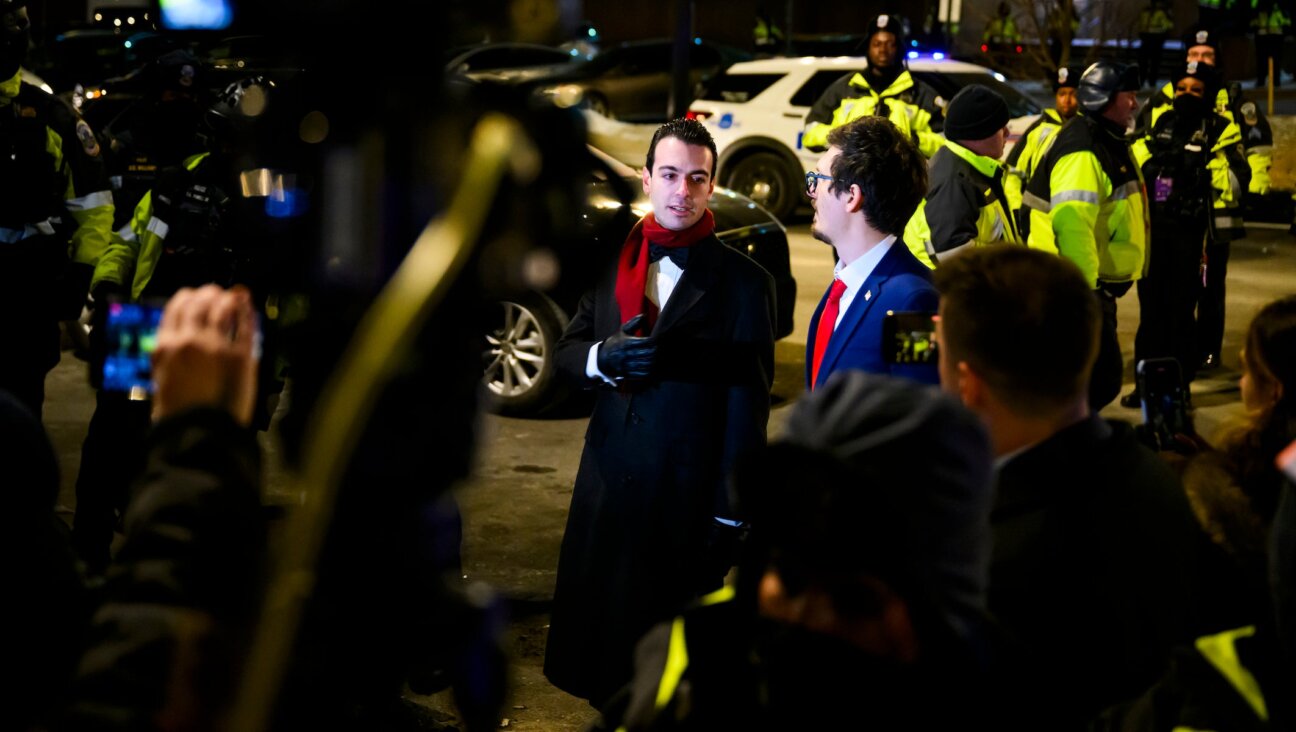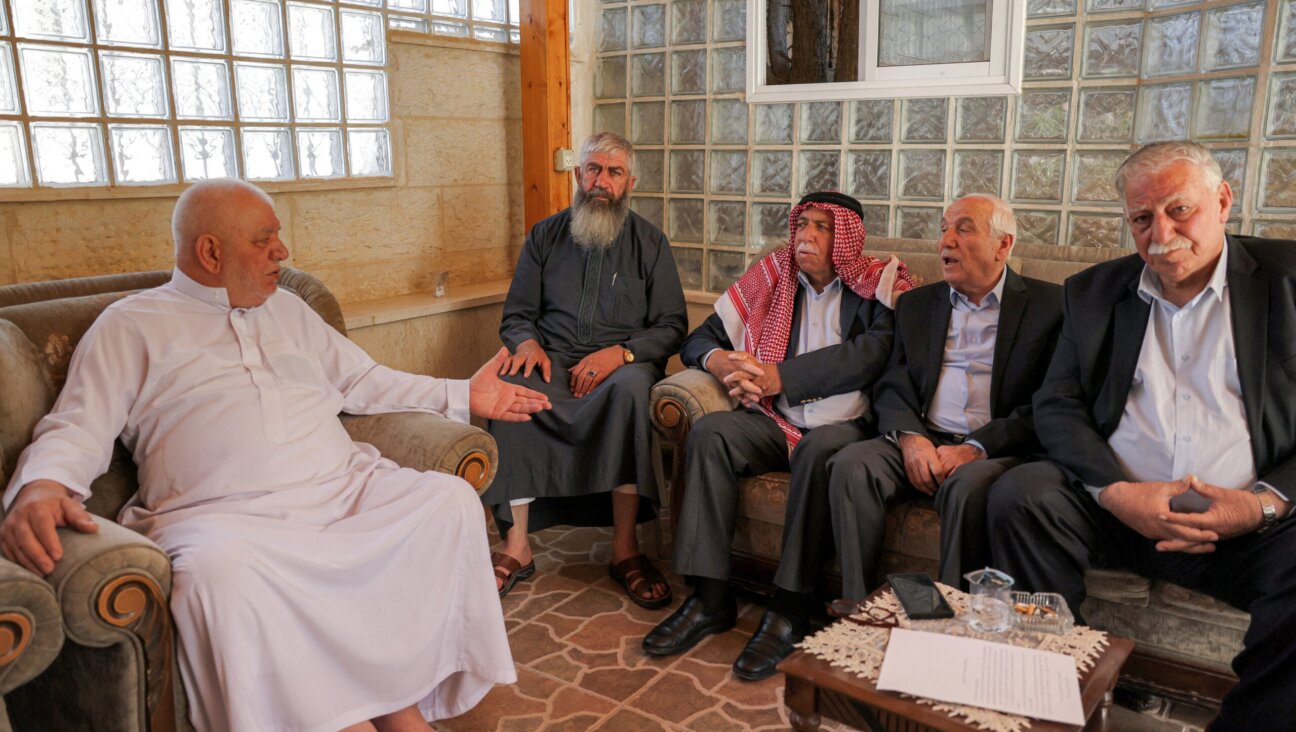Remembering Stuart Schoffman, journalist, screenwriter, translator and mensch

Graphic by Angelie Zaslavsky
This article originally appeared in Haaretz, and was reprinted here with permission.
Journalist, historian, screenwriter and translator Stuart Schoffman died Sunday at his home in Jerusalem, at age 74.
In recent years, Schoffman worked principally as a literary translator, rendering into English books by the Israeli writers A.B. Yehoshua, David Grossman and Aharon Appelfeld (among others). But his long career included working as a writer at both Time and Fortune magazines, a decade as a screenwriter in Hollywood and, after moving to Israel in 1988, serving as one of the founding editors of The Jerusalem Report magazine, for which he wrote a regular column for nearly 17 years.
Stuart (as I will call him, as I had the privilege and pleasure of having him as both a friend and colleague) was born on December 19, 1947, in Brooklyn. However, to get the full measure of the man, one needs to know a little about his father, Louis (Elazar) Schoffman. Born in a Latvian village, Louis – the son of a ritual slaughterer – arrived in the U.S. at age 11. Eventually, he became a professor who taught both Hebrew and Greek at Brooklyn College.
After Louis’ death at age 95, Stuart wrote that his father had been “a member of the last generation of maskilim, Jewish intellectuals of a special time and place: European-born, multilingual Hebraists; rationalists devoted to Jewish tradition; liberal humanists with a passion for knowledge and independent thought.”
Aside from the birthplace, Stuart could have been describing himself as he possessed not only a love for all things Jewish but also an engagement with the modern world and its culture – both high and low – and politics.
His catholic range of interests was partnered with a prodigious memory and a love for precision, but also great humanity, so that whatever subject he engaged with, he took on with authority based in knowledge and morality. His approach to Judaism, and to Israel, was and remained liberal, pluralistic and enlightened. He also could tell a great joke.
Stuart grew up in Flatbush and attended, K through 12, its vaunted, eponymous yeshiva – a coeducational Jewish day school where Hebrew was taught as a living language, and used for the instruction of secular subjects as well as sacred.
When it came time for college, according to Stuart’s son, Dani, his father told him: “If you’re going to leave Brooklyn for college, it has to be to Harvard.” So, Stuart went to Harvard.
Hollywood calling, then Jerusalem
After graduating in 1969, Stuart moved from Cambridge to New York, where he worked as a writer, first at Fortune magazine and then at Time. That was followed by graduate school at Yale University, where he studied American history, stopping short of earning a doctorate. Then, like so many bright young Jewish New Yorkers of earlier generations, he headed to Hollywood to write screenplays, a few of which even made it to the screen. (He also taught screenwriting at the University of Southern California and was book review editor for the L.A. Herald Examiner.)
One of them was the 1992 action film “The Finest Hour,” which starred Rob Lowe as a Navy SEAL. According to Dani Schoffman, when producer Menahem Golan read Stuart’s first draft, he told him it was excellent – now he just needed to “take out everything and rewrite it, with a lot more sex” (although Golan’s language was juicier).
By the time of the film’s release, Stuart was living in Israel, having immigrated in 1988 after marrying Roberta Fahn, a political and strategic consultant. He and the American-born Fahn, who had moved to Israel some years earlier, met during a visit Stuart made to his parents, who had themselves made aliyah in 1979.
It was Stuart who recruited me to The Jerusalem Report, which began publication in the fall of 1990. As one of its founding editors, it was he who as much as anyone helped the weekly (later biweekly) – which aspired to be a Jewish equivalent of Time magazine – achieve and maintain that lofty journalistic goal in its early years.
Almost immediately, however, in the rainy winter of 1991, Stuart learned that he had a particularly aggressive form of lymphoma. He went to the U.S. for a grueling course of treatment, during which he and Roberta, who by then was pregnant with their second child, a daughter, decided that when he recovered – if he recovered – they would mark their gratitude by naming her “Rafaela,” meaning “healed by God.” Rafi is now 30 and Dani 32.
Six years later, Stuart was struck with leukemia, which necessitated a bone-marrow transplant and, again, a long spell in hospital in the U.S., this time in isolation for much of the time.
I go into this detail because, for one, Stuart wrote about these ordeals, poignantly, and also because they affected the course of the rest of his life. Those treatments saved his life, but they also almost certainly shortened it, and for the next three decades he contended with a steady stream of medical challenges. This was something he did with forbearance and dignity – and humor. He himself was also always ready with advice and compassion for those around him who were contending with illness.
During the past decade or so, Stuart did less of his own writing – although he did produce a number of erudite, long-form essays about Jewish literature and more for the Jewish Review of Books – and devoted himself mainly to translations.
Translation is important literary work, but at least until recently it was rarely given the recognition it deserves. Stuart, however, brought his usual care and erudition to this work, and he was justifiably proud of it – particularly his renditions of A.B. Yehoshua’s last five novels. The most recent one, “The Only Daughter,” will be published in English only next year.
Stuart Schoffman was a brilliant and talented man who was no less admirable for his personal qualities, which is why the hundreds of people whose lives he touched will remember him lovingly. Foremost in those qualities was his devotion and pride in his family.
His memory, I have no doubt, will serve as a blessing.
This article originally appeared in Haaretz, and was reprinted here with permission.























